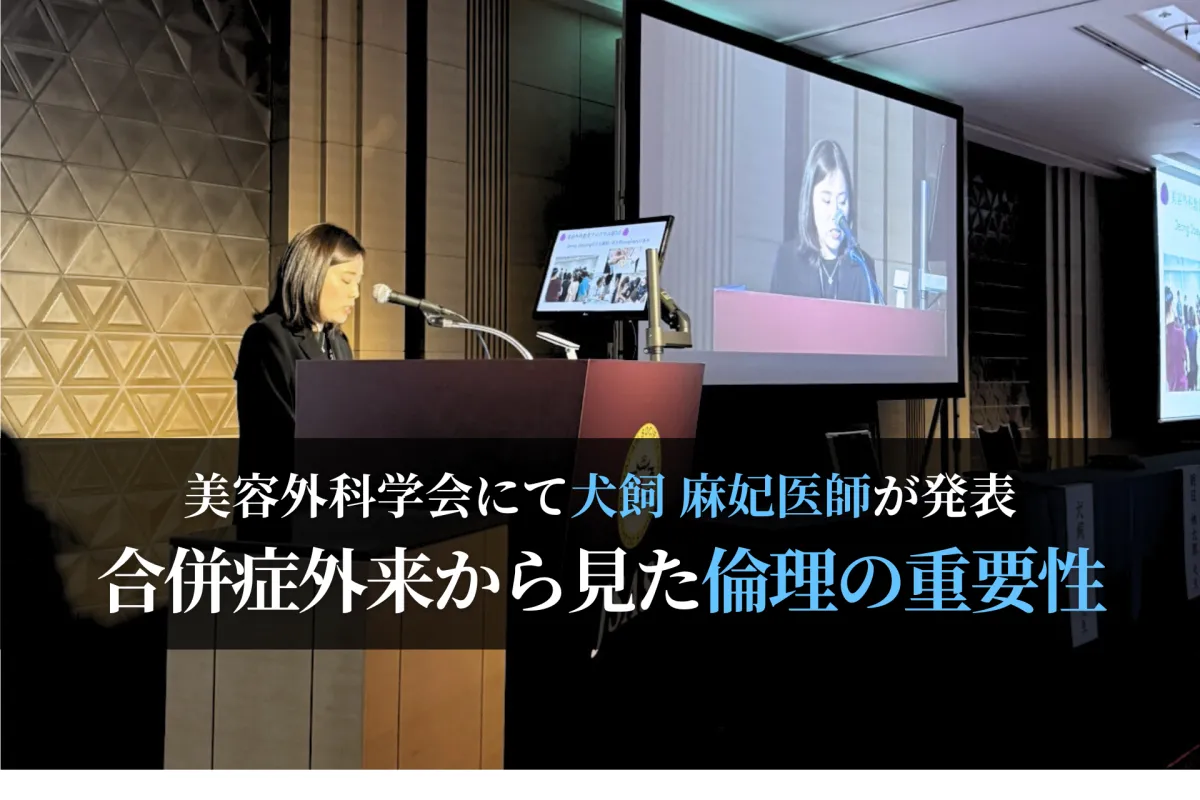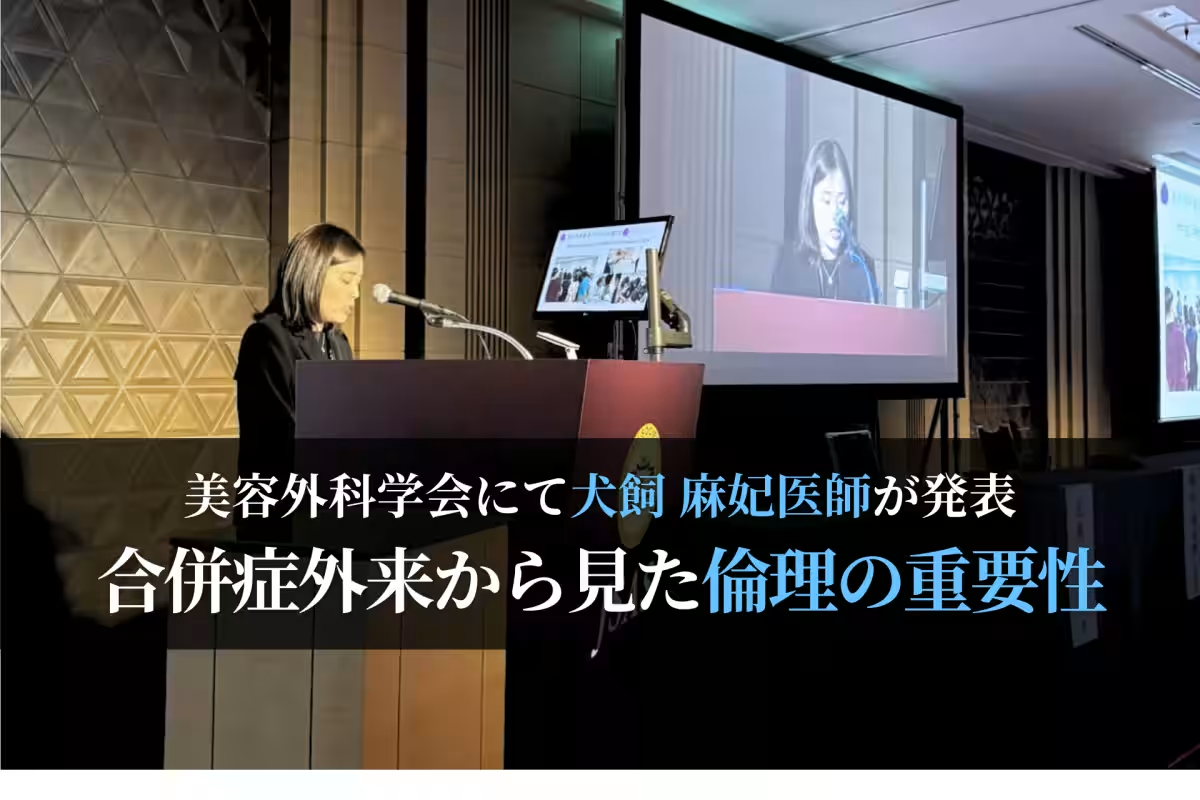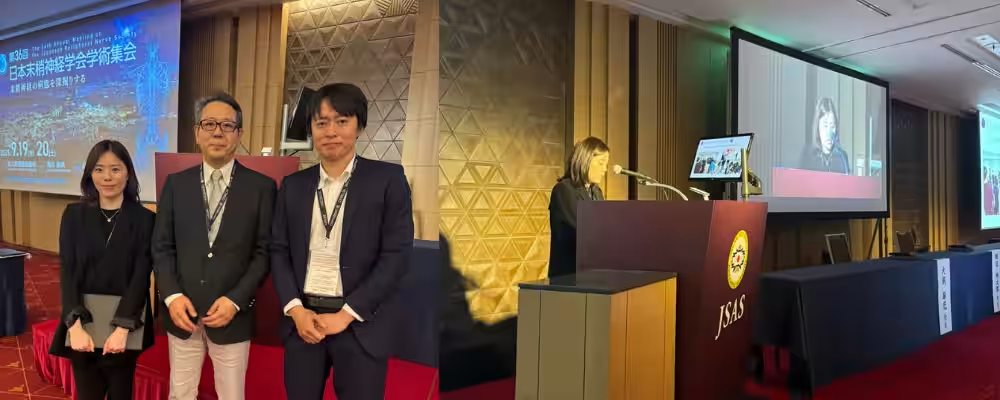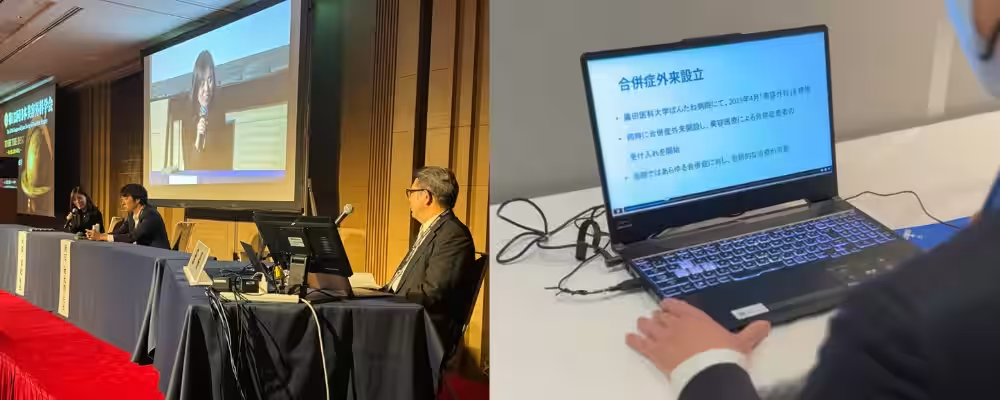

The Future of Aesthetic Medicine: Emphasizing Ethics in Complication Clinics
The Future of Aesthetic Medicine: Emphasizing Ethics in Complication Clinics
As aesthetic medicine continues to become more accessible, the importance of addressing potential complications has become paramount. Dr. Maki Inukai, a prominent figure in the field, recently delivered a presentation at the 113th Japanese Aesthetic Surgery Society on May 29, 2025, where she highlighted the crucial role of complication clinics and the ethical responsibilities of medical professionals in this evolving landscape.
Background of Complication Clinics
Dr. Inukai, who practices at The Plus Aesthetic Clinic in Daikanyama and Nagoya, has been integral to the establishment of a complication clinic at Fujita Health University Bantan Hospital since 2023. This initiative aims to address complications and sequelae arising from aesthetic medical procedures, including various cases related to Aqua Filling breast augmentation. As the demand for aesthetic treatments surges, the number of patients encountering complications due to inadequate information or choosing the wrong procedures is increasing. Often, these patients find it challenging to seek out appropriate advice, leading to delays in receiving care. This clinic offers a vital resource for patients experiencing issues related to aesthetic procedures, allowing them to access proper treatment within a university hospital setting while ensuring a system is in place for urgent situations.
Dr. Inukai asserts that the essence of aesthetic medicine should enhance one's quality of life and foster a positive mindset. To achieve this effectively, patients must be well-informed and, equally essential, physicians must approach their practice with a high degree of ethical consideration. The existence of complication clinics like hers is seen as a critical step in promoting safety and trust in the field.
Three Key Messages from Doctors in the Complication Clinic
1. Acquire Knowledge About Procedures
Patients visiting the complication clinic often lack essential information about the procedures they have undergone, sometimes not even knowing the type of filler that was used. Many patients who underwent Aqua Filling procedures, touted as 'safe' by large clinics, arrived at the clinic with unclear memories of the treatment due to time elapsed since the procedure. Despite being banned in many countries, Aqua Filling is still utilized in some clinics in Japan, which underscores the necessity for patients to familiarize themselves with the types of procedures available and their associated risks before making decisions. Patients should engage with their doctors, ensuring that they understand their options and risks, thus safeguarding their well-being in the realm of aesthetic medicine.
2. Selecting a Competent Physician
Today, patients can easily research the educational backgrounds and training of physicians. Therefore, it is crucial to be wary of doctors who provide limited information about their qualifications. While experience in aesthetic procedures is essential, a physician with a diverse range of techniques may offer more flexible and tailored solutions for patients. It is vital for patients to find a balance, selecting a physician based on both their experience and their ability to adapt to individual needs and desires.
3. Seek Multiple Consultations
When uncertain about where to receive treatment, seeking consultations at various clinics is encouraged. Engaging multiple perspectives can aid in identifying the most suitable treatment and establishing trust with a physician. Moreover, patients should be cautious of clinics that pressure them into making quick decisions during consultations. Ideally, patients should undergo procedures when they feel entirely comfortable and prepared to proceed, emphasizing the importance of thorough research and contemplation before committing.
Education and Ethics in Aesthetic Medicine
The provision of safe aesthetic medicine transcends mere knowledge and skill; it requires a foundational sense of responsibility and ethics among medical professionals. However, an alarming increase in physicians performing procedures without adequate training has led to ethical concerns and medical mishaps. In response to this challenge, The Plus Aesthetic Clinic, in collaboration with Fujita Health University’s plastic surgery department, is conducting regular hands-on seminars aimed at cultivating responsible medical personnel equipped with the necessary skills to deliver high-quality aesthetic care. Although education alone cannot ensure ethical conduct, fostering an environment where continuous learning is encouraged will inevitably lead to improvements across the aesthetic medicine industry.
Enhancing educational frameworks and instilling ethical practices are critical steps toward elevating the quality of aesthetic medicine while ensuring patient safety and trust. At The Plus Aesthetic Clinic, efforts are concentrated on creating an environment where patients can undertake treatments confidently, backed by a commitment to managing any arising issues diligently, thereby supporting every patient’s journey through aesthetic medicine.
The Plus Aesthetic Clinic Overview
Daikanyama Clinic
- - Address: 3F ROOB1 Daikanyama, 28-13 Sarugaku-cho, Shibuya-ku, Tokyo 150-0033
- - Established: March 31, 2021
- - Director: Ikue Daikan
Nagoya Clinic
- - Address: 2F Famous Marunouchi, 3-18-22 Marunouchi, Naka-ku, Nagoya 460-0002
- - Established: May 10, 2023
- - Director: Shunsuke Nagae
Company Overview
- - Company Name: JCM Group Co., Ltd.
- - Business Activities: Managing and operating The Plus Aesthetic Clinic in Japan
- - CEO: Toshihiro Maki



Topics Health)










【About Using Articles】
You can freely use the title and article content by linking to the page where the article is posted.
※ Images cannot be used.
【About Links】
Links are free to use.